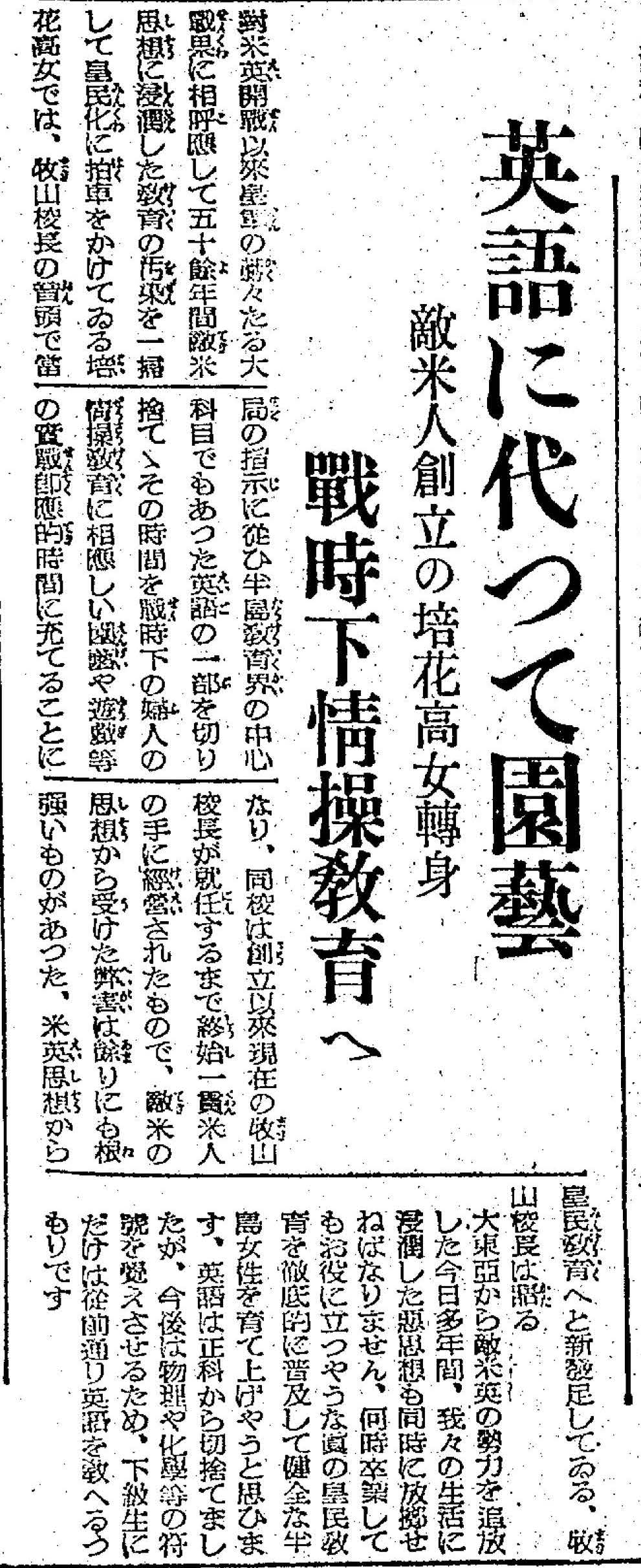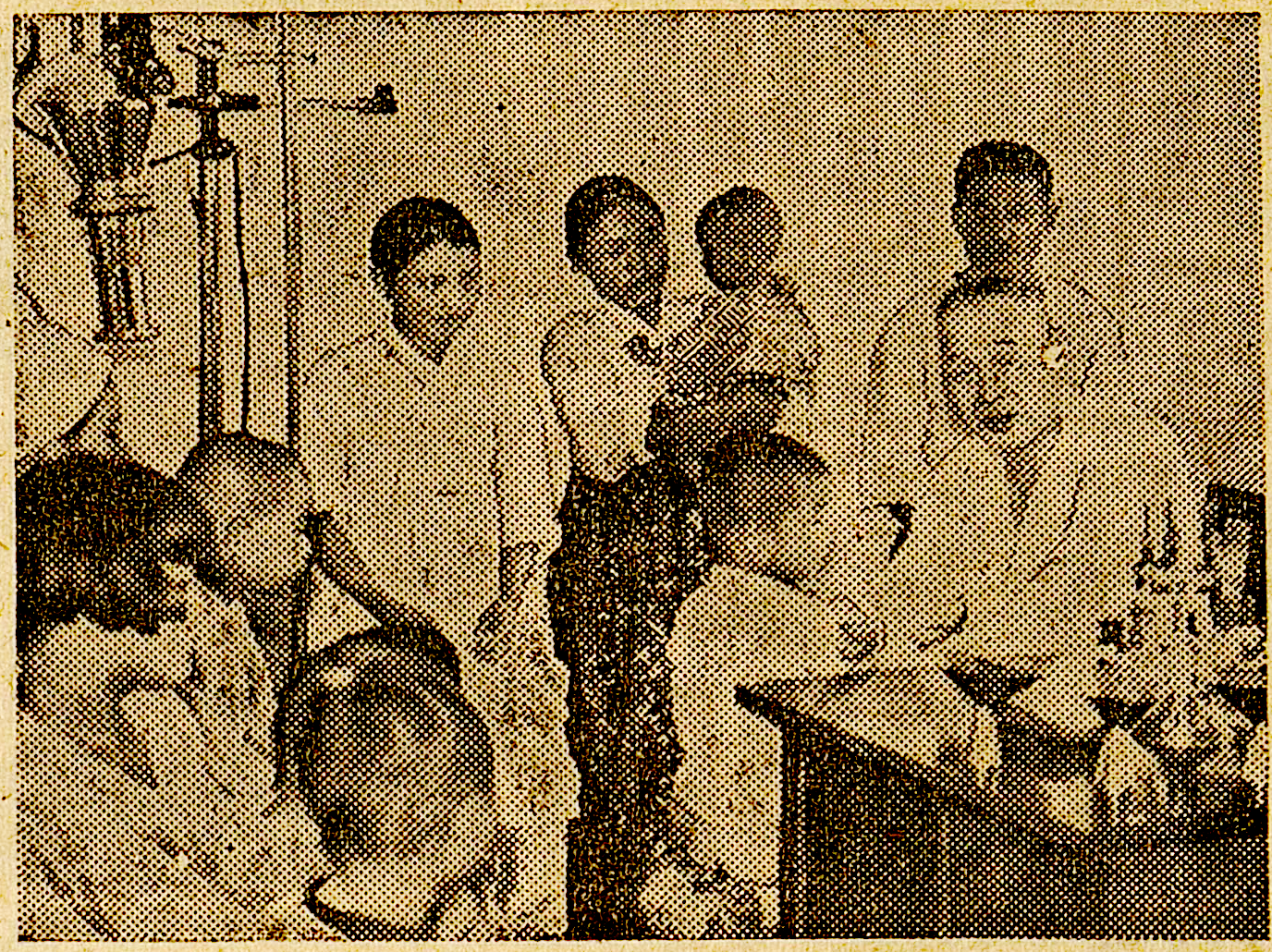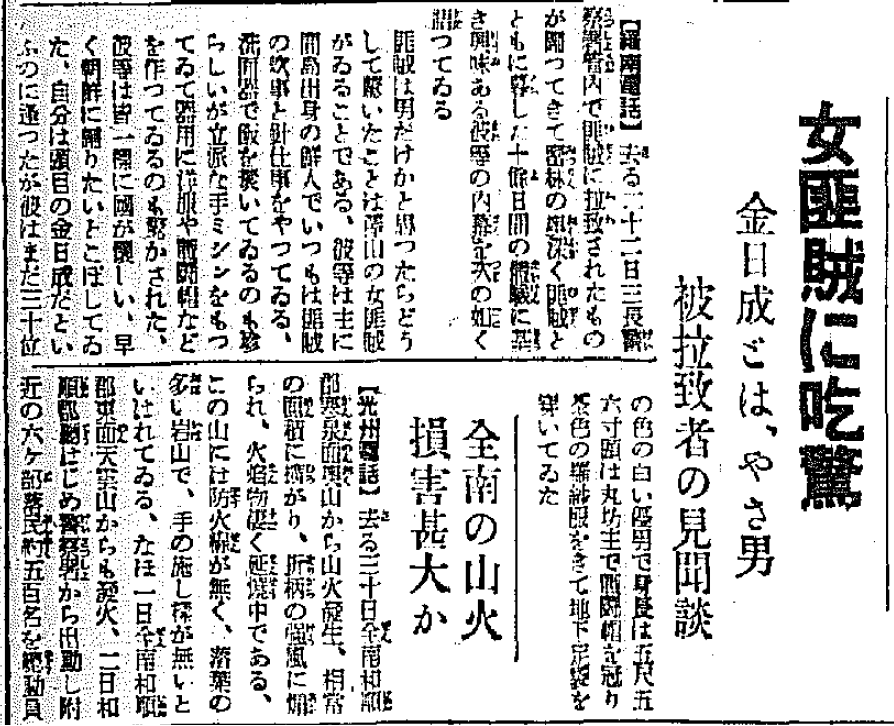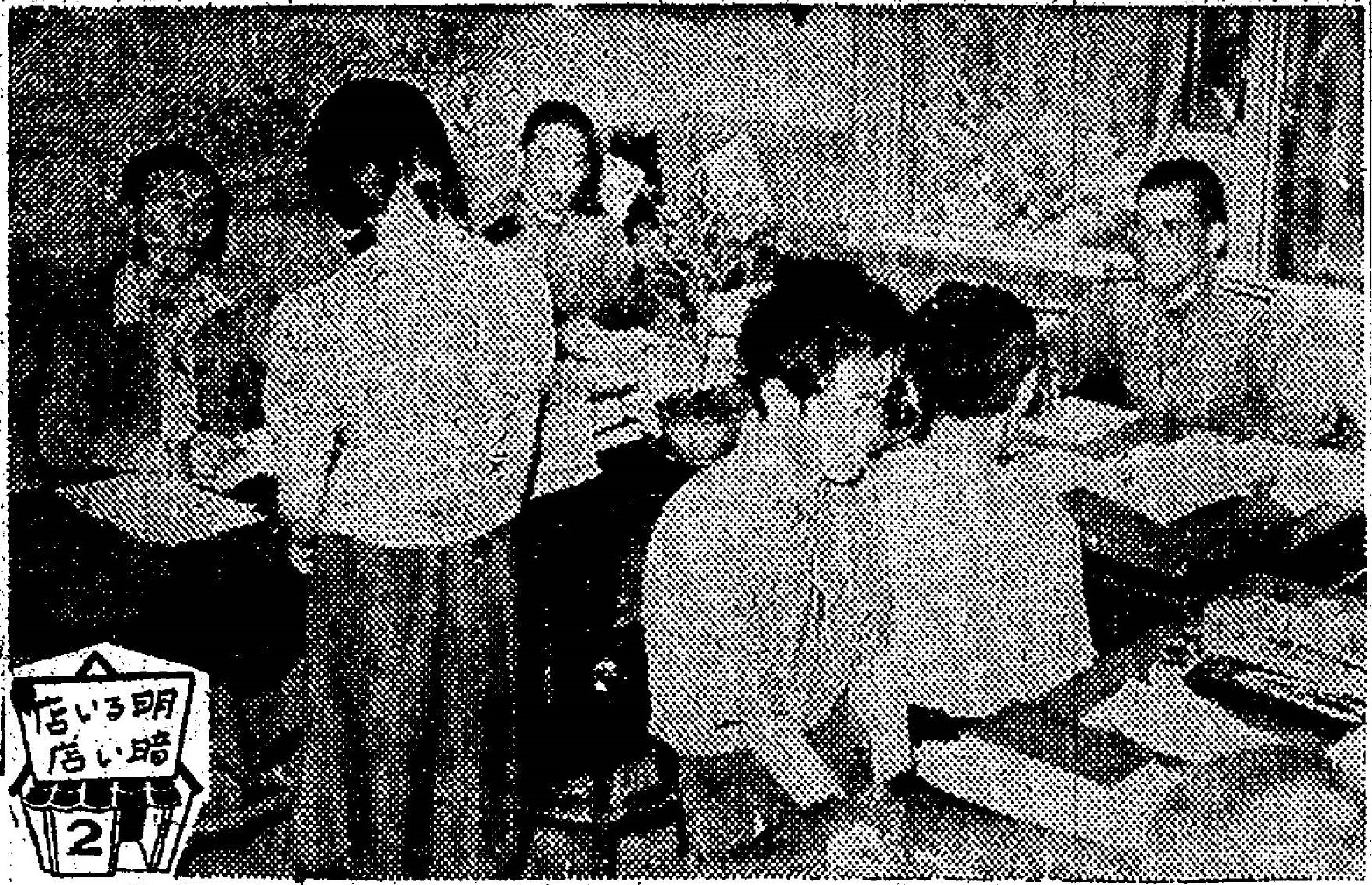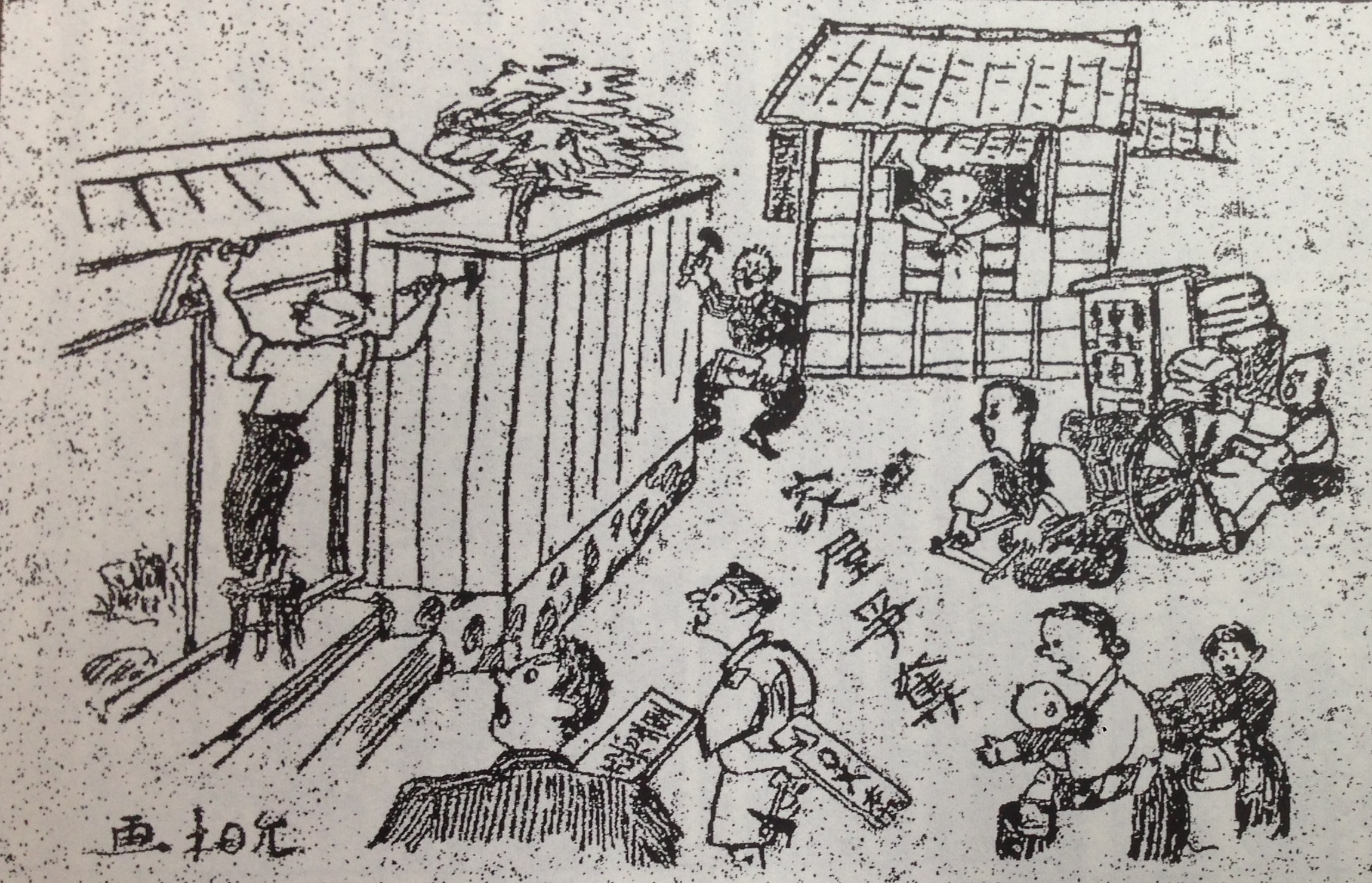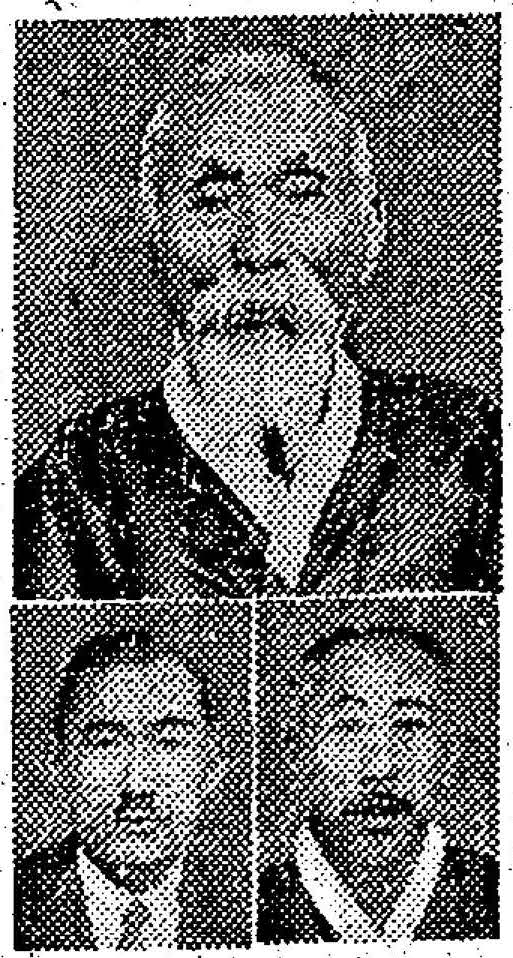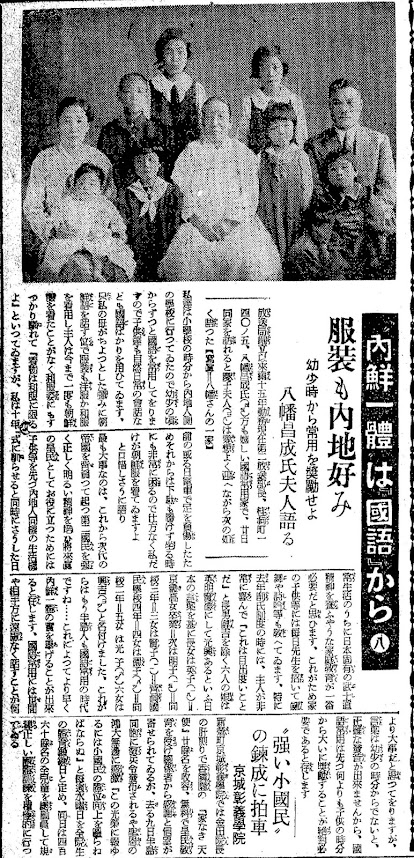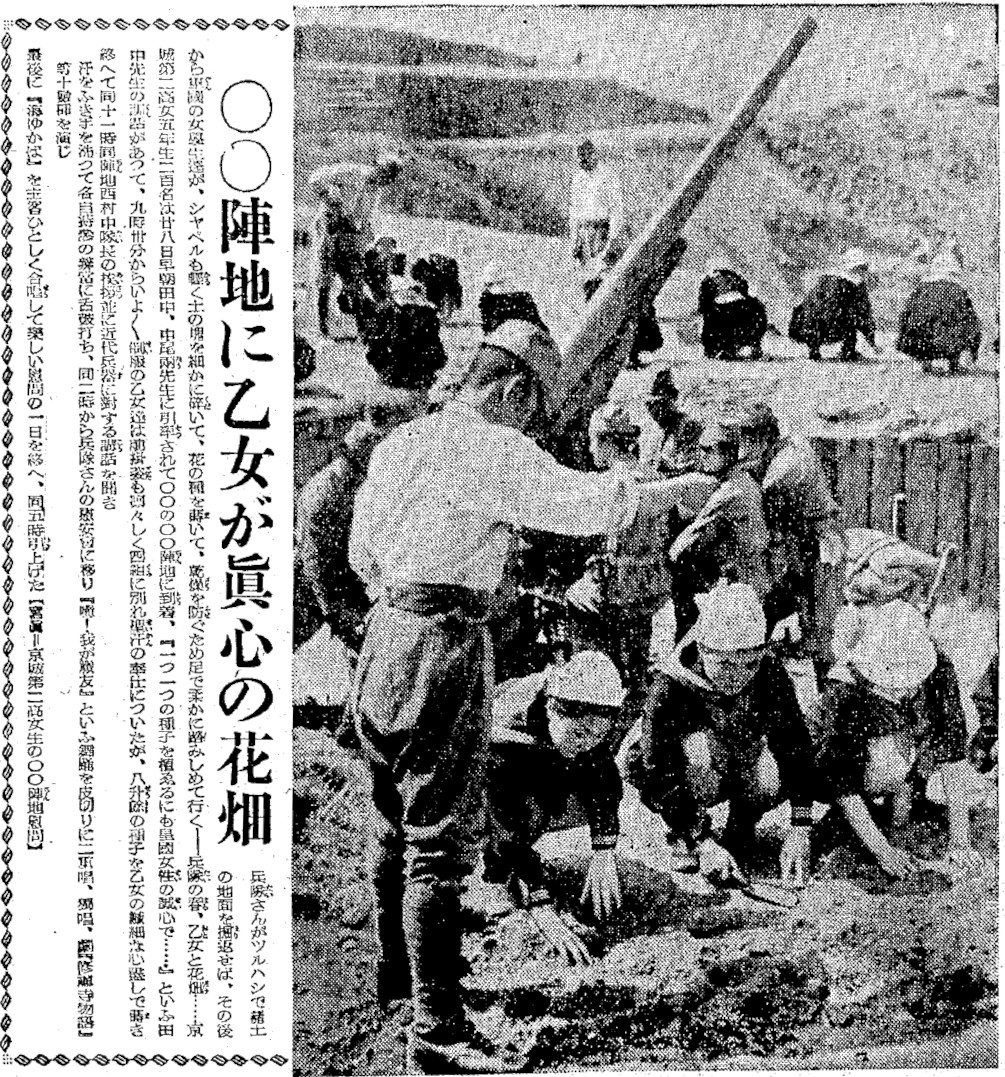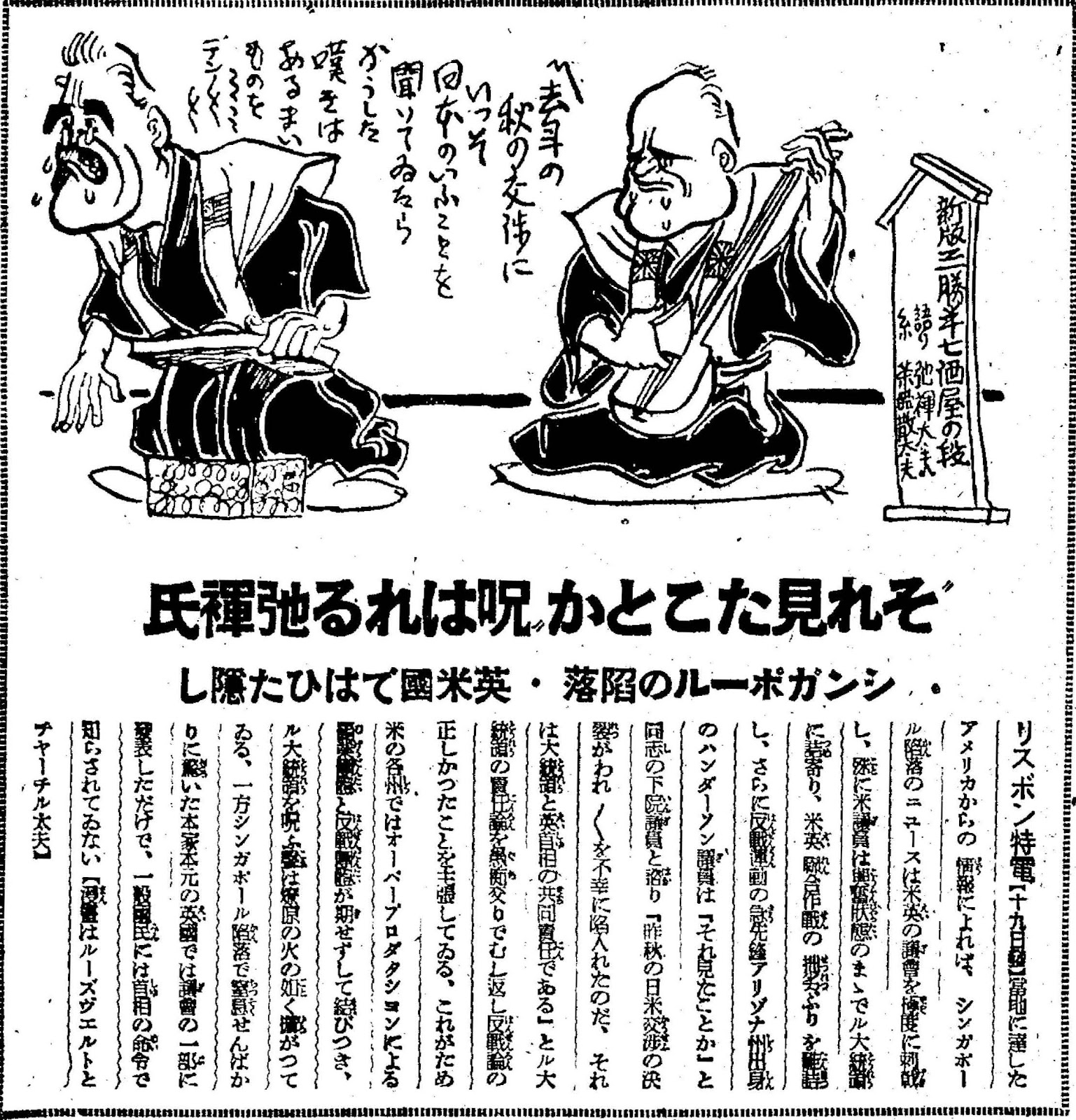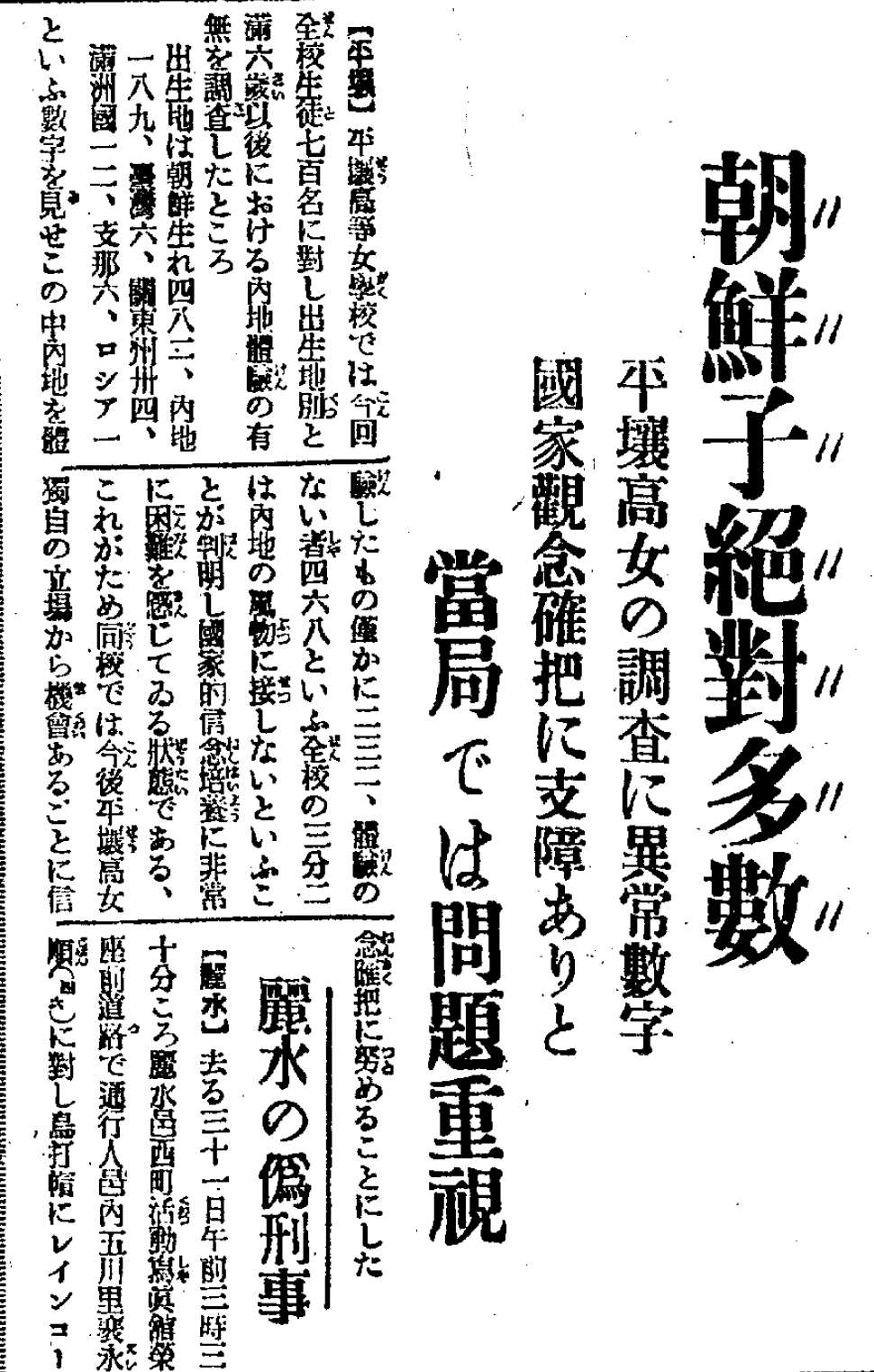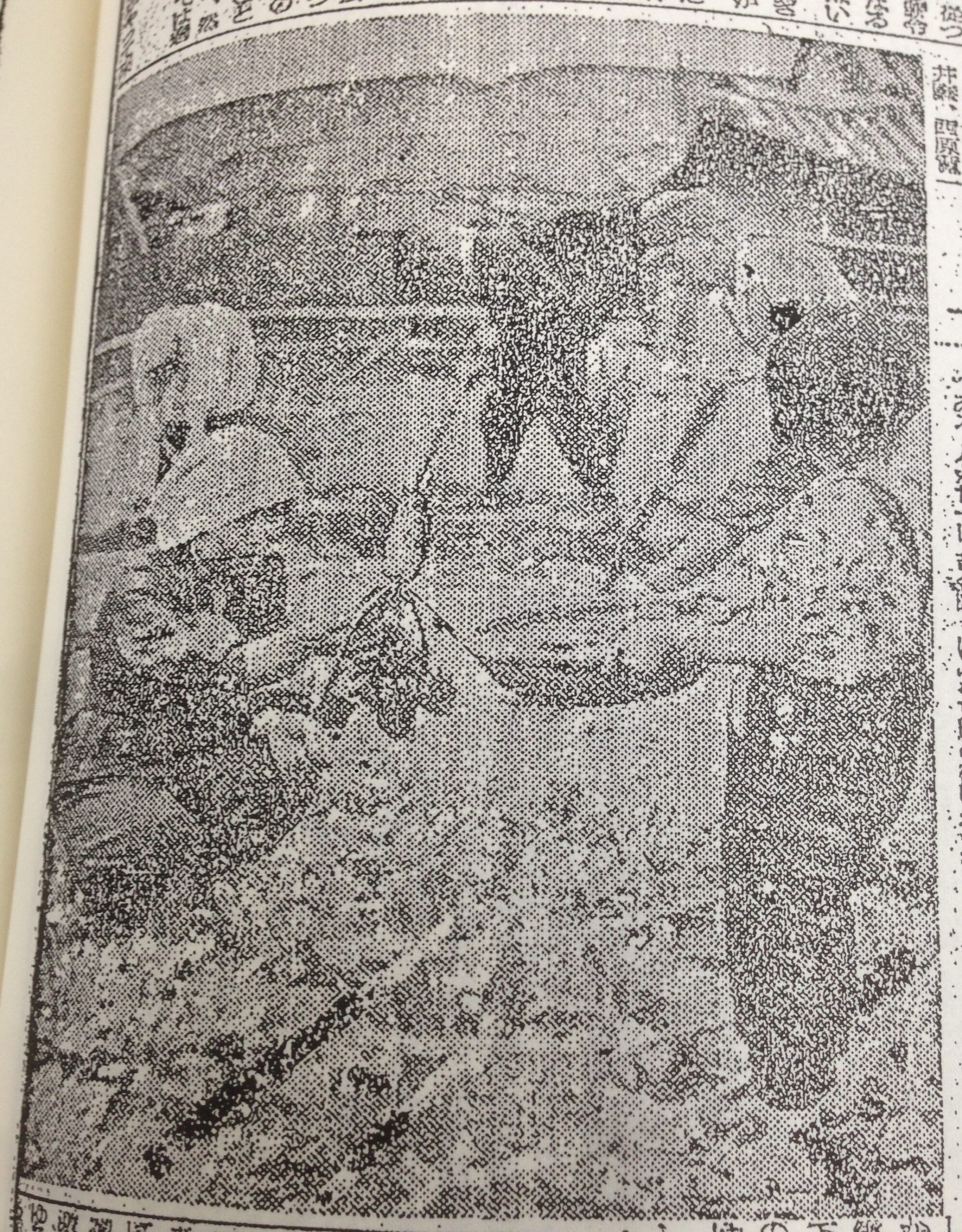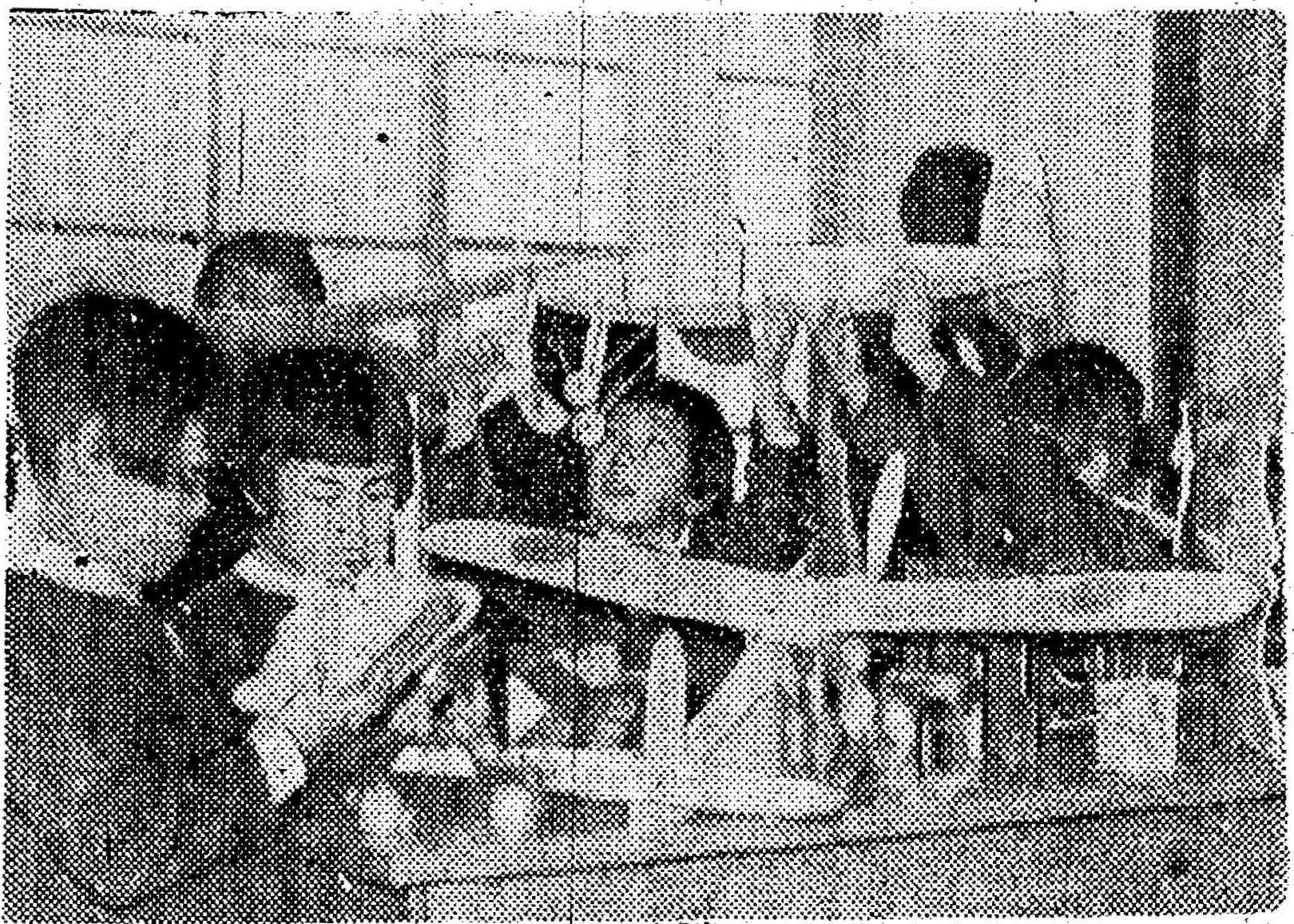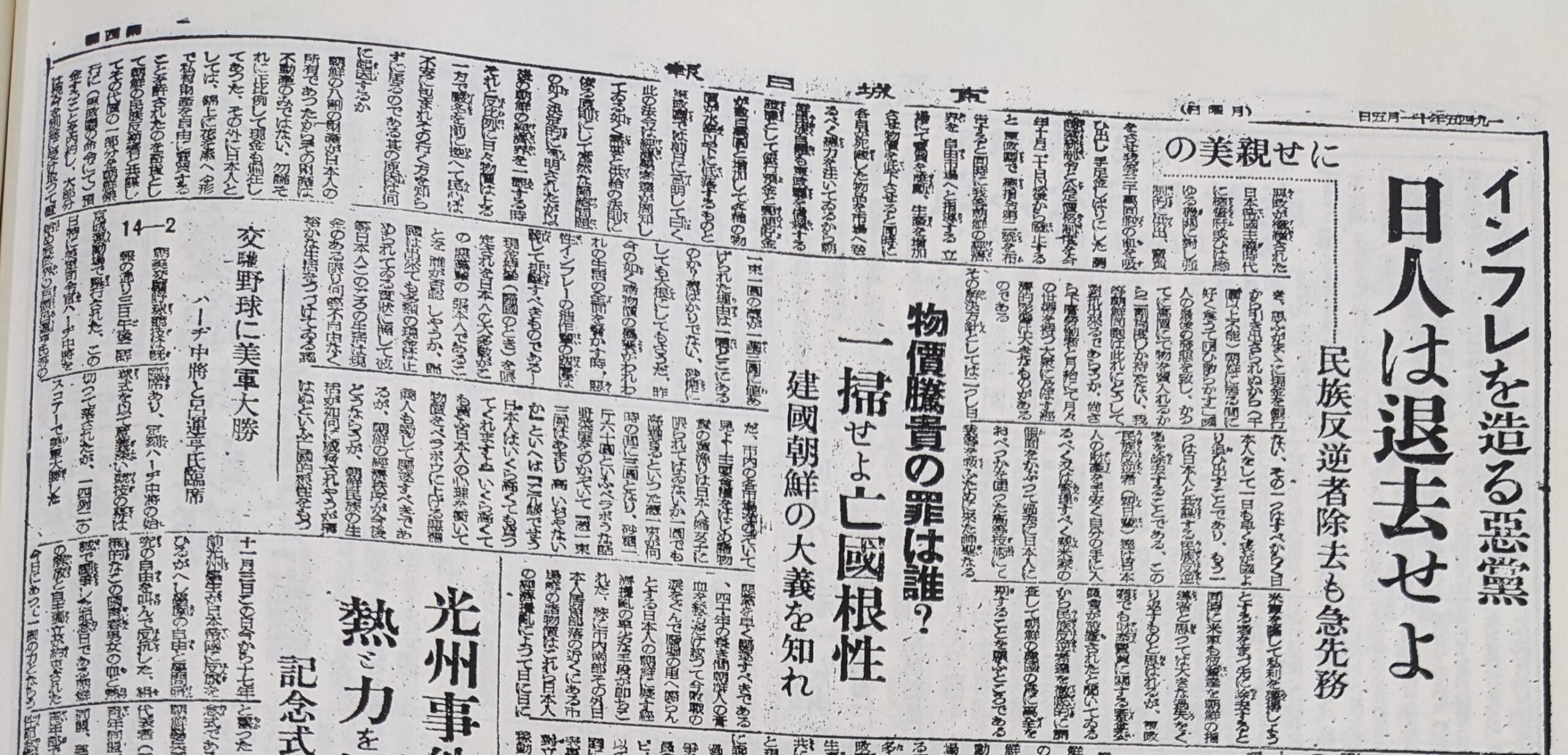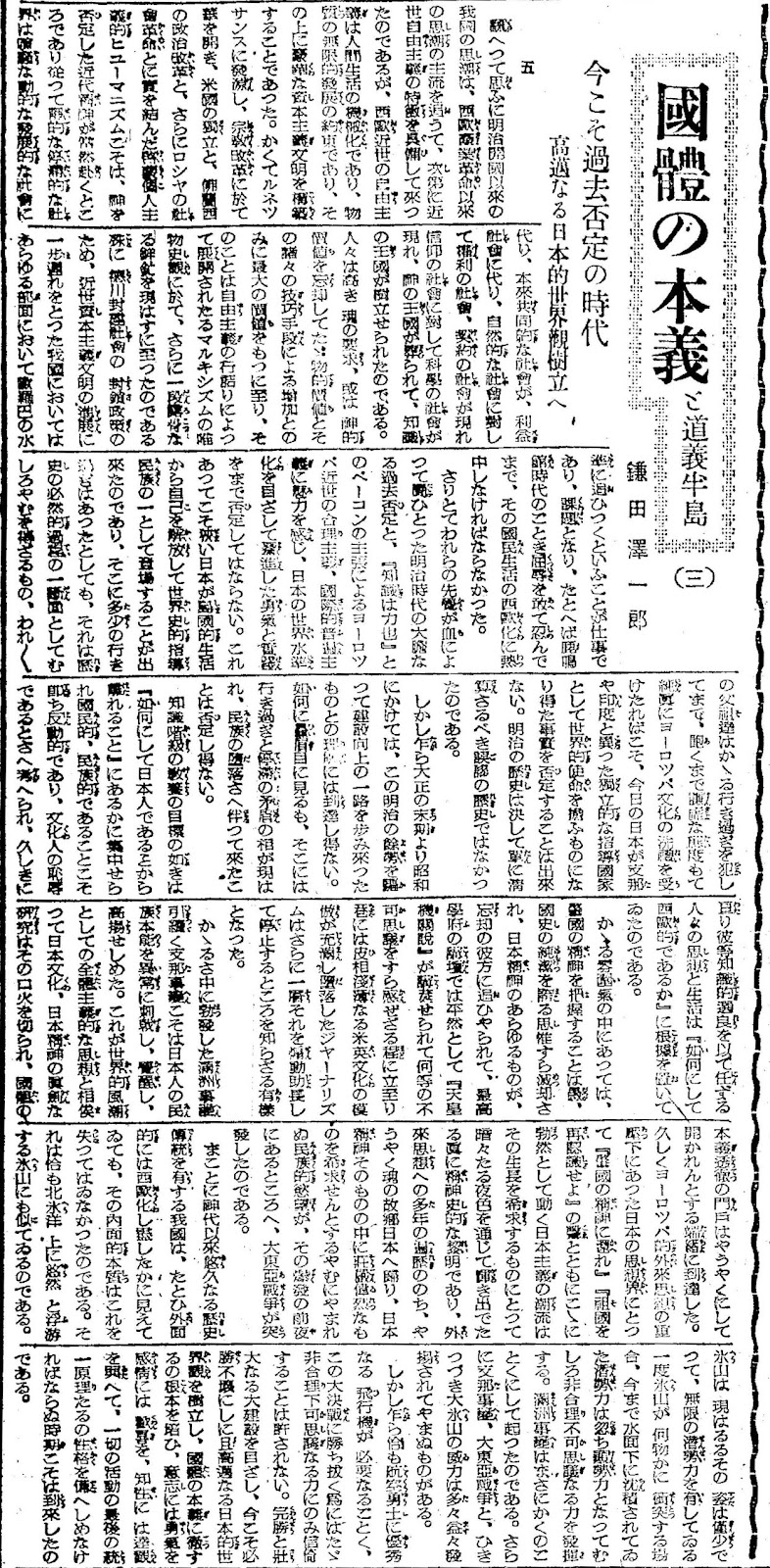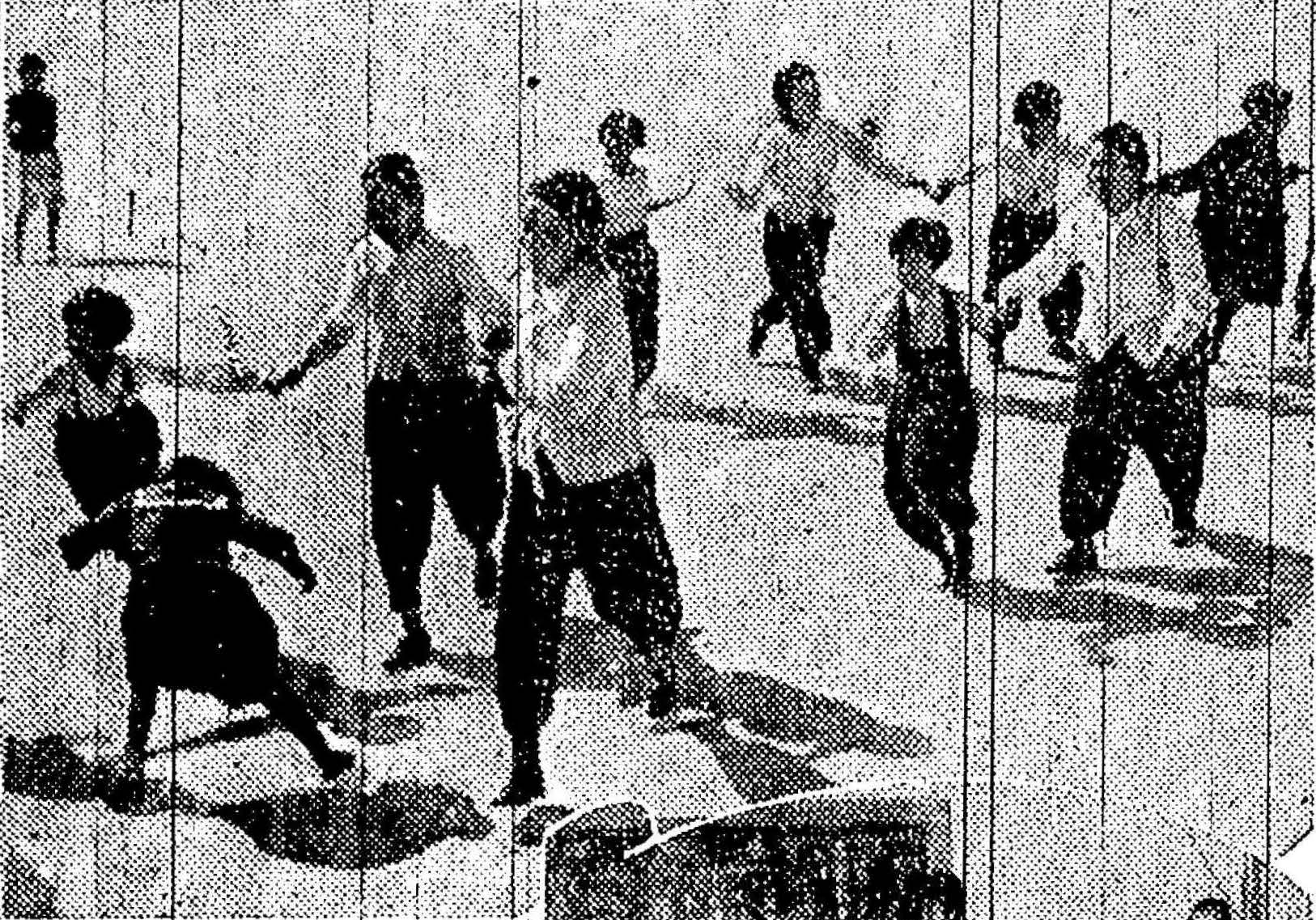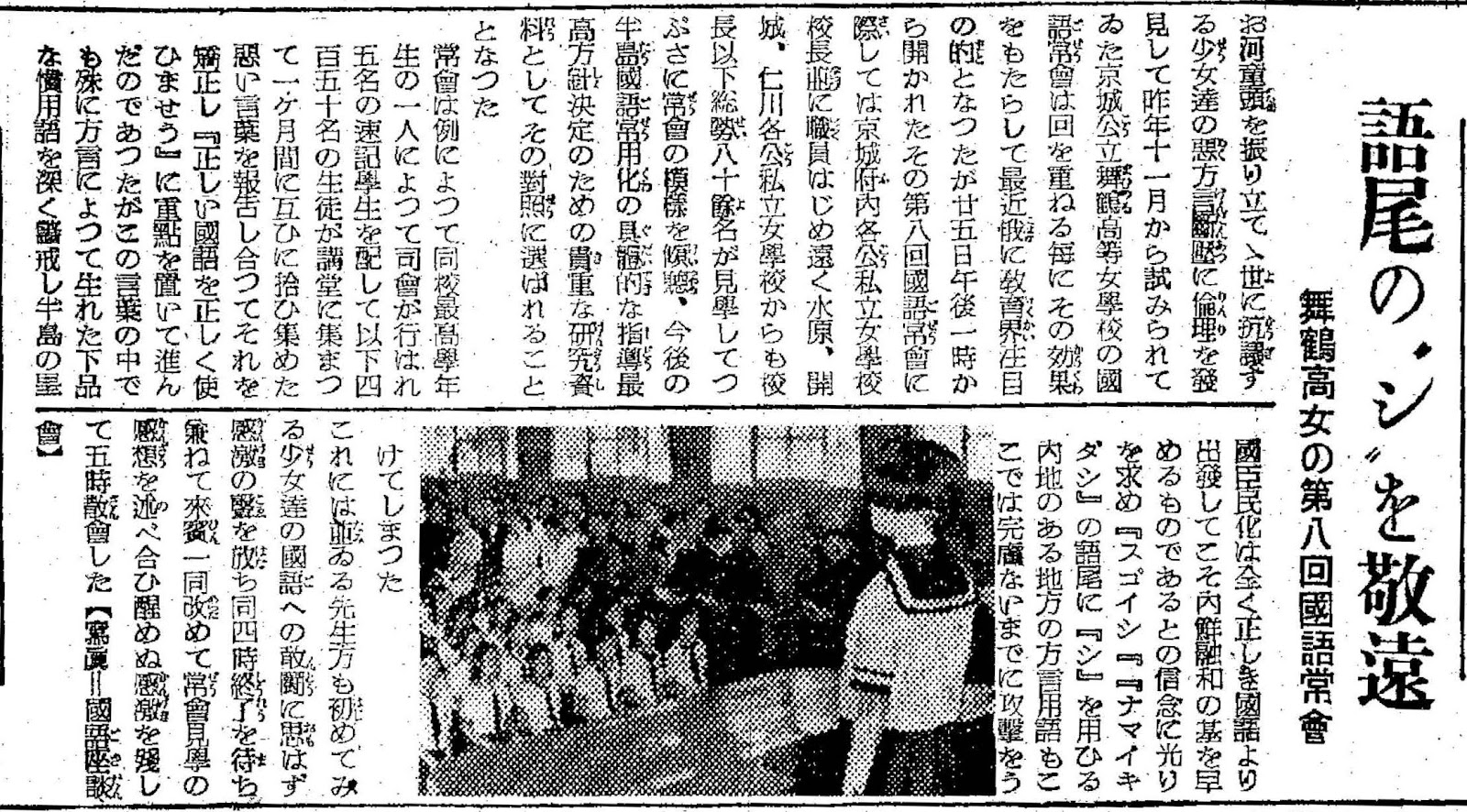
In Japan-occupied Korea, Koreans often spoke Japanese using phrases and grammar from regional Japanese dialects that they picked up from colonial settlers – mandatory language classes made them unlearn these “vulgar colloquialisms” and speak standard Japanese
Gyeongseong Ilbo (Keijo Nippo), June 27, 1942
Shunning the adding of “shi” at the ends of sentences
The Eighth Regular Japanese Language Meeting of Maizuru Girls’ High School
Showing off their bowl haircuts, the girls at Maizuru Girls’ High School have been holding a regular meeting in public on the Japanese language since November last year in order to find an ethical solution to the suppression of their bad dialectal speech patterns. These suppression efforts have been showing effectiveness with the passing of each meeting and have suddenly become the focus of attention by the educational world in recent days. At the eighth regular meeting of the Japanese language held at 1:00 p.m. on the 25th, more than 80 people, including principals and staff members from public and private girls’ schools in Seoul, as well as from Suwon, Kaesong, and Incheon public and private girls’ schools, visited the meeting and listened carefully to the proceedings. The meeting was selected as a valuable research resource for the determination of the best future policy for teaching the Japanese language in the Korean peninsula.
As usual, the regular meeting was presided over by one of the school’s top students, and with five student stenographers in attendance, the following 450 students gathered in the auditorium to report on the bad words that they had picked up from each other over the past month and to correct them, with the emphasis on “let’s correctly use the Japanese language”. In particular, they were deeply concerned about vulgar colloquialisms that originated from dialects, and sought to shed light on the belief that the imperialization of the peninsula could only be achieved by starting with a correct Japanese language, which would hasten the foundation of reconciliation between Korea and Japan. Completely attacked were dialectal phrases from certain regions of Japan proper, including the addition of “shi” at the ends of sentences such as “sugoi-shi” (It’s great) and “namaikida-shi” (He/she is insolent).
Even the teachers were impressed by the girls’ valiant efforts in the Japanese language, which they had never seen before. Once the meeting ended at 4:00 pm, the guests once again shared their excitement about the regular meeting, and leaving with a lasting impression, the attendees dispersed at 5:00 pm. Photo: Japanese Language Roundtable Discussion
Source: https://archive.org/details/kjnp-1942-06-27/page/n3/mode/1up
